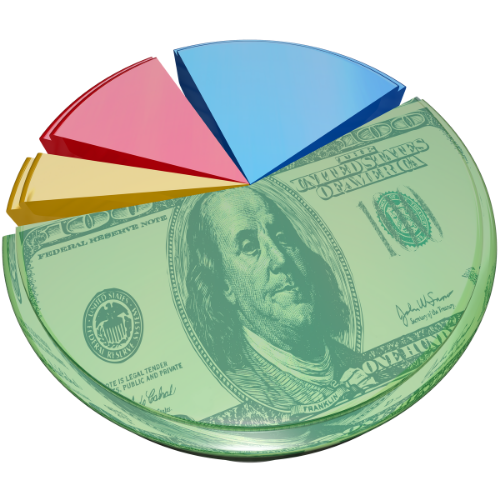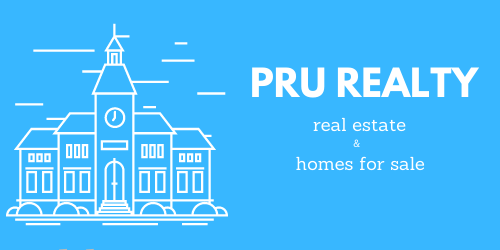Costs to sell your house
You’re likely hoping to make a profit when you sell your home. According to property data firm ATTOM Data, home sellers across the country earned $67,100 for a typical sale during the first quarter of 2020.
This article will tell you how to lower the costs of selling your house.
What is the Average Cost to Sell a House?
The average house sale costs 10% of the selling price. So if you sell your house for $200,000, this means that you will spend $20,000.
This percentage could fluctuate due to a variety of factors:
-
How to Prepare Your Home
You should highlight the best features of your home before you list it. This will allow buyers to visualize themselves living there. Staging is a process that involves placing furniture and decor throughout your home. It costs on average $12,218. According to Home Advisor, hiring someone to mow your lawn will only cost you about $50.
The size of your house and the scope of the project will impact the cost. These projects can be done yourself to save money, but you should also consider how much time it will take and whether an expert would do a better job.
-
Real Estate Agent Commission Fees
Sellers usually pay an average of 5% to 6% commission on the sale price. You would pay between $10,000 and $12,000 for a $200,000 house. This amount is split between your real estate agent and the buyer’s agent. NAR reports that 75% of sellers paid this amount in 2019. However, there are also full-service discount real estate brokers that will list your house for 1%. One of the most common mistakes in selling a home can be not knowing you can negotiate the commission. Understanding how much you should pay in commission is paramount.
Selling your home yourself can lower this cost (FSBO), but you may still have to pay the agent fee. The commission fee is around $5,000 to $6,000. However, according to the National Association of Realtors, nearly nine out of ten buyers hire a realtor.
Seller concessions
Seller concessions are when you agree to pay a portion of the closing costs for the buyer. To sweeten the deal, you may offer to pay the buyer’s title insurance or inspection fee. Opendoor data shows that seller concessions are typically between 1.5% and 2% of the home’s sale price.
Loan types limit the number of concessions available. Conventional mortgages that conform to Fannie Mae guidelines can be granted concessions up to 3% or 6% of the home’s sale price. The buyer’s downpayment determines the cap.
Concessions for VA loans are limited to 4% by the Department of Veterans Affairs, and 4% by FHA loans by the Federal Housing Administration.
Closing costs: 1% – 3%
Both the buyer and seller must pay closing costs to cover the cost of the sale. The closing costs for a buyer typically range between 2% and 5% of the selling price. Sellers typically pay 1% to 3%.
The closing costs of a seller usually include the closing fees, transfer taxes, and recording fees.
Variables in your Mortgage Payment
You will need to pay off any mortgage balances when you sell your home. The proceeds from the sale of your home can be used to repay the original loan. However, interest accrued may leave you with a small gap. That difference will need to be made up. Contact your loan servicer if you have questions.
Capital Gains Tax
Capital gains tax is a tax on any profit made from the sale of real estate or other assets. This tax will be charged if the sale of the home occurs less than one year after the move-in date.
There are many ways to reduce or eliminate capital gain tax expenses. Capital gains tax may not apply to real estate if the property is your primary residence and you have lived there for 2 of the last 5 years.
A single home seller who sells their primary residence may be exempted for up to $250,000, and married couples can get up to $500,000. Let’s take, for example, a $200,000 home that you purchase and then sell five years later for $300,000. The capital gain would be $100,000. Capital gains tax would not be payable on the sale of the profit, which is less than $250,000
Home Repairs
Before signing the dotted line, most home buyers request a home inspection. This is to ensure that the property is in good condition. If the inspection is not satisfactory, they may request that you pay for repairs. The cost of repairs will depend on the condition of your home. It is possible to forgo certain or all repairs but this could lead to a loss in the sale.
You should have your home inspected before you put it up for sale to avoid having to negotiate repairs. Inspectors will check the house for any damage, appliances that are broken, and other areas that need repairs. While you might be able to do some of it yourself, avoid making costly mistakes by hiring professionals when necessary.
Moving costs
The distance you are moving, the amount of stuff you have with you, and whether professional movers are hired will all affect how much you pay for your move. Moving.com reports that the average cost to move a local two- or three-bedroom house is $1,250. Long-distance moves can cost up to $4,890.
Renting a truck can help you save money and do the heavy lifting yourself. For a small move, this can cost as little as $130 or as much as $3,250 for long-distance moves.
So how much does it cost to sell a house?
When considering the costs of selling a home, there’s more to it than real estate commission fees. You’ll also need to budget for closing costs, staging, taxes, and more. The average cost to sell a house typically adds up to 10% of the sale price.
These costs can be used to help you determine if they are applicable to your particular situation. This will give you a better understanding of the potential profit from the sale. Contact a real estate professional if you are looking to sell your house in the near future.



